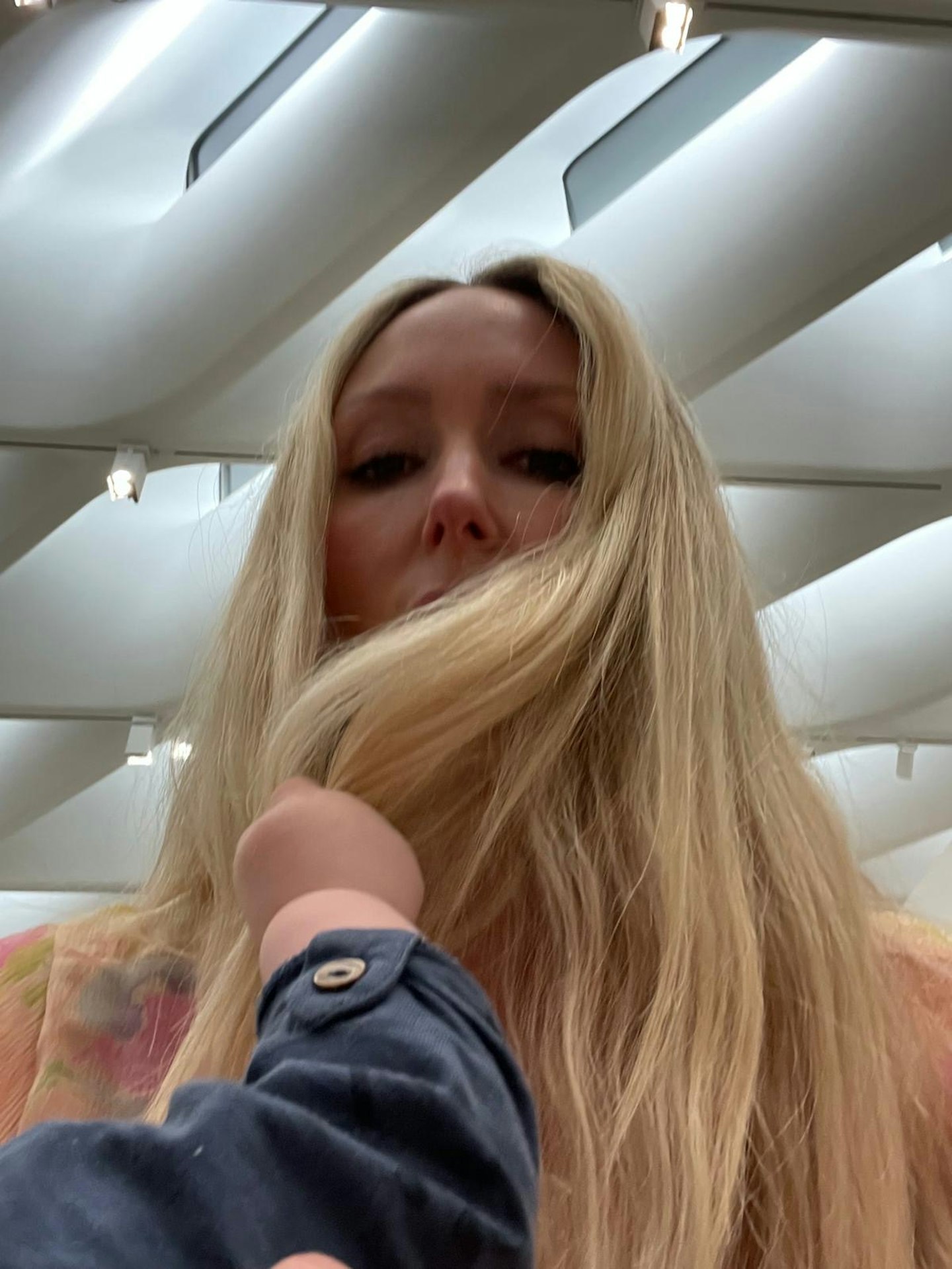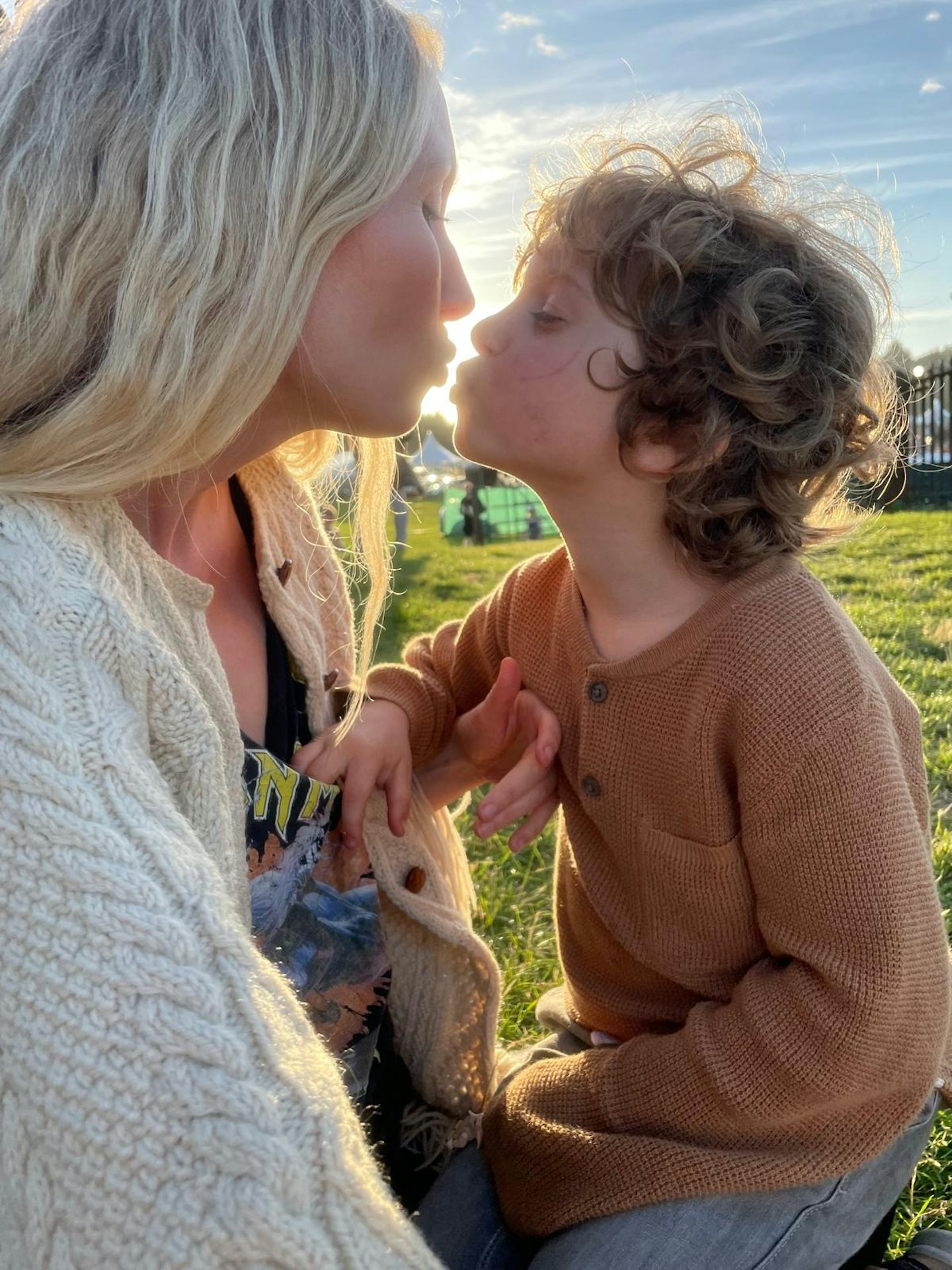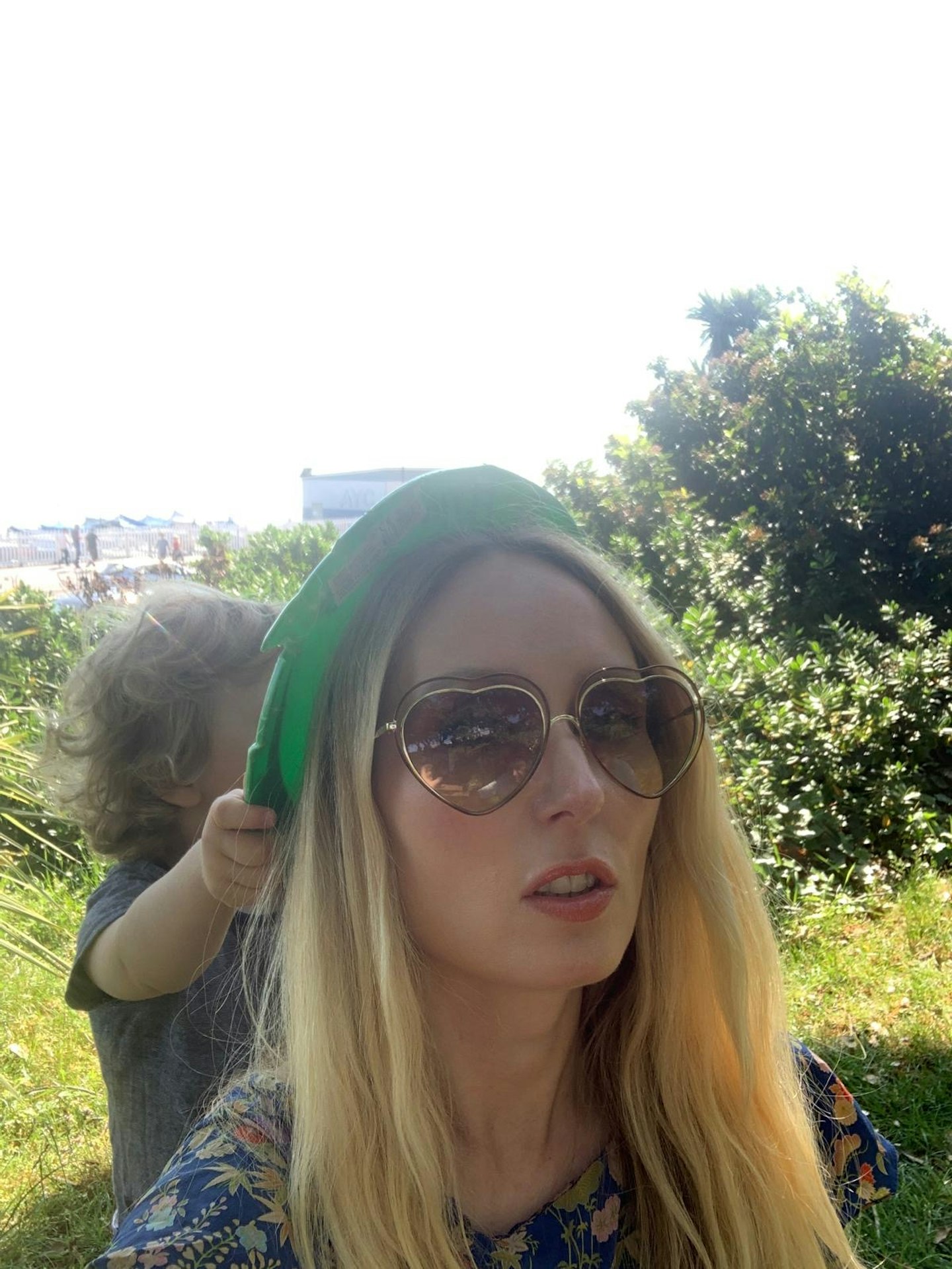Motherhood is… challenging. I could park that comment there (I write, as I stare off into the middle distance through slightly glazed, sleep-deprived eyes), but motherhood in your 40s is a different kettle of fish altogether. You’re still getting to grips with having a child at a point in time when most peoples’ career and child-rearing peaks collide, or you suddenly find yourself out of sync with the majority of your friends who have followed a more conventional reproductive timeline. But it’s the hormonal toll that packs a double-whammy. Let me explain.
When I had my first child at 41 (a slap-me-in-the-face-with-a-Baltic-Flounder ‘surprise’) I would extoll the virtues of being an ‘older’ parent to anyone who would listen. I still felt easily a decade younger than my chronological age (albeit sleep deprived) and simply wouldn’t have had the mental fortitude to have done it any younger.
I had, or so I thought at the time, inadvertently nailed the perfect time to have a child. But three years after having my second child at 43 and it’s a whole different story. In the midst of doom scrolling the other night (sleep being particularly evasive these days and not just due to having a three year old looming over my bed every night) I stumbled across a post from menstrual education and childbirth expert @janehardwickecollings that was a lightbulb moment as it articulated everything I’d been feeling over the past few years.
'Birth rates for women over 40 are increasing, and we need to talk about this because the average age of menopause is 50 (with ranges from 45 to 50) which means that many women will begin navigating their perimenopausal journey with young children,' she wrote. She goes on to say that as oestrogen (‘known as the hormone of sacrifice and accommodation’) levels decline, many women blame themselves for struggling with feelings about how much they have to give.

In essence, Hardwicke Collings had thrown a spotlight on something that me and my fellow ‘geriatrics’ (or ‘mothers of an advanced maternal age’ as tends to be the more au courant turn of phrase) had been experiencing, and it’s something we don’t seem to be talking about enough. A brief scan of the comments confirmed that I’m clearly not the only one lying in bed at night tormenting myself over being particularly irritable with my three-year-old, or blowing up at my six-year-old over something trivial.
Commenters penned my exact thoughts: ‘OMG! I am so happy I came across this! I’m on HRT now thank goodness. At the beginning I would wake up so agitated. It didn’t take much for me to start shouting at my boys. Then I would feel so guilty and a bad mother.’
And it’s this huge dollop of mum guilt on top of the steaming pile that we as women seem to carry around with us daily (do dads beat themselves up about giving the kids beans on toast for two consecutive nights? Me thinks not) that is the real sucker punch. Because being rage-y with an equally rage-y teenager somehow sits better in the soul than sniping at a toddler (however unreasonable they can be).

So why is the postnatal/perimenopausal junction particularly overwhelming? 'I often see patients who have had their children in their 40’s and then postpartum are trying to navigate perimenopausal symptoms and it can be really hard,' says Dr Amalia Annaradnam, one of the UK’s leading bio-identical hormone replacement therapy specialists. 'The run up to the menopause is when women’s hormones levels start to fluctuate. Periods may stop for a few months and menopausal symptoms like flushes and mood swings start then periods come back and symptoms can settle. It can be like this for months or even years and can be a turbulent time for many women as these fluctuations in symptoms can often be debilitating.' Dr Amalia notes that many women who get pregnant in their 40’s often feel amazing due to the high levels of progesterone but when they drop suddenly post-birth it can mark a significant shift in how they feel. Sleep, low mood, and fatigue can be signs of low progesterone but are also common with a newborn so it can be hard to differentiate.
'Some women even go straight into menopause after having a baby and periods never come back. This can be more common in women who have had IVF,' she adds.
Looking back, I probably started experiencing symptoms at 43 but because they weren’t the obvious ‘hot flushes’ I’d read about and because I became pregnant with my three-year-old shortly afterwards, I (wrongly) presumed that symptoms such as mood swings, dry skin, aching joints and feeling fuzzy-headed were down to life being life. It wasn’t until about two months after I’d finished breastfeeding my then one-year-old and the symptoms returned with a vengeance that I realised I hadn’t been thwarting mother nature after all; that girl always gets her own way in the end.
Tiredness (more than 95% of perimenopausal and menopausal women experience fatigue), brain fog and mood swings hit me like a Cocomelon train and I was struggling to function.

But as Dr Amalia points out, unpicking the fine chains of where hormonal decline starts and where the maelstrom of the postpartum period begins can feel like a rather lonely, desolate place to be. 'As with all my patients, it is hard to differentiate what are hormonal symptoms and what is our busy lives and having no time for ourselves, as women are often juggling jobs and kids and sometimes aging parents, too! That’s why it’s really important to try and maintain good nutrition, exercise and sleep when you can as this will help to create balance even though this can be easier said than done.'
Having treated many peri and pre menopausal women over the years, Dr Amalia manages their symptoms with progesterone only up until the menopause when oestrogen then declines before adding oestrogen back in alongside testosterone when needed. 'A holistic approach is really important and the root of my practice,' she adds.
And taking a holistic approach to what is proving to be a particularly challenging time is exactly what I am trying to do. Do I still have moments when the hormonal hellfire overrides the parent I would like to be? Absolutely. Mum guilt has a steady stream of sustenance in this household. But by acknowledging what’s going on and with the help of people like Dr Amalia, my acupuncturist Ross Barr and by adding in some diet and lifestyle tweaks; Dr Amalia has instructed me to up my protein, start strength-training and start taking some supplements (I’m lovingWild Nutrition’s Perimenopause Complex, £35, Ross Barr’s DHA/EPA Formula, £26, Artah’s Enhanced Symbiotic, £39 and FabU’s Shrooms Meno & Peri, £24.99) I feel more able to lean into this life stage. Did I mention that I love being a mum and wouldn’t have it any other way? I always forget to say that part.
Cassie Steer is acting beauty director at Grazia with over 25 years’ experience on women’s glossies.
